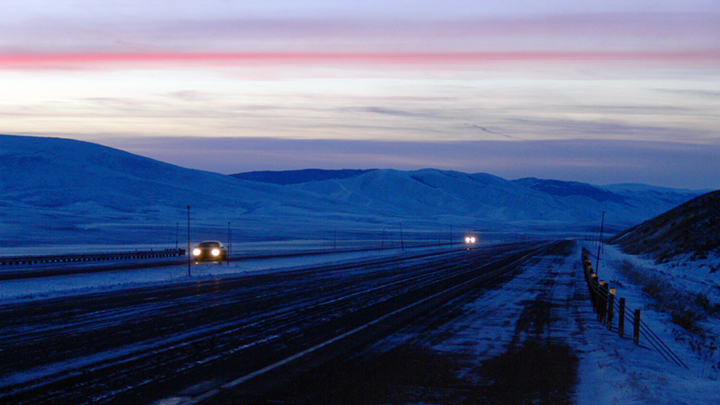
There are times when the road ahead does not represent opportunity, adventure, enlightenment, pleasure, or fulfillment. There are times when all one can envision looking ahead are things that will be left behind: warmth, friendship, a sense of belonging, material comforts, accomplishments, unfinished projects, even a clear sense of who we are and what our place in the world is. Feelings turn dark. Anxiety, fear, apprehension invade our thoughts. It is a peculiar aspect of our culture that winning is so universally celebrated while losing is so universally shunned, to be avoided at all costs. The aspirations embodied in efforts to win often serve as good example for the rest of us, but it is equally true that none of us will always find ourselves on the winning side. In fact, all of us will suffer loss far more often than we will ever enjoy the exaltations of victory. Why then is so little cultural attention paid to propagating healthy mechanisms and institutions for coping with loss? It is true that the mourning process has been quite thoroughly studied. But seemingly very little of what has been learned has been incorporated into our culture. Uninebriated talk with friends and family mostly avoids dealing with feelings of loss, preferring instead to focus on bucking up for the next available opportunity at victory. And if that doesn't work, most individuals will turn to solitude and/or self-medication, a few to self-destructive acts. Some organized religions try to offer consolation in the fantasy of a more "just" afterlife. Professional therapists offer pills or a sobering chance to talk about what was lost and what might come next. Not so very few find solace in anger, hate, and acts of revenge. Nobody likes to lose, but few get through the experience without scars. As a culture, why can't we do better? It is so in our nature to build things from virtually nothing: edifices, institutions, relationships, narratives of accomplishment. And when the dream is snatched from us, irreversibly thwarted, we are crushed. And we are not the only species who suffer this affliction. Most mammals exhibit the same debilitating distress at serious loss: dogs do, monkeys do, elephants do, even dolphins do. The Hispanic culture has developed something I think we all might learn from. They are in the habit of building shrines to people and things lost. You may have seen one or two beside the road, adorning the place where a loved one died. They are more elaborate than the usual small white crosses. Similar shrines may be built within one's house, in one's yard, or at various places in the community. While the shrine may begin as a place of mourning, a way to fix a memory, if you watch, the shrine will change over time. It changes because the person or thing that was lost continues to play a dynamic role in the lives that continue. The shrine is eventually abandoned when that which was lost is no longer needed by those who continue. It is not so different for a child who at some point untraumatically leaves behind his or her teddy, its function finally outgrown. Perhaps it would be more healthy for all of us to build or erect a surrogate for what is lost from our lives, and to be allowed to let that surrogate accompany us wherever we may need it, until at some point it is no longer useful and we can move on without the scar of its abrupt and traumatic disappearance. But then, how would you do that not for what is lost, but for all that might be lost down that potentially cold and lonely winter's road ahead? |
• Posted: Feb 16, 2008 16:08:22
• Comments Welcome
• Vote CoolPhotoblogs
• Purchase a Print
• Share
Friday, December 29th, 2006 i90 MT USA |